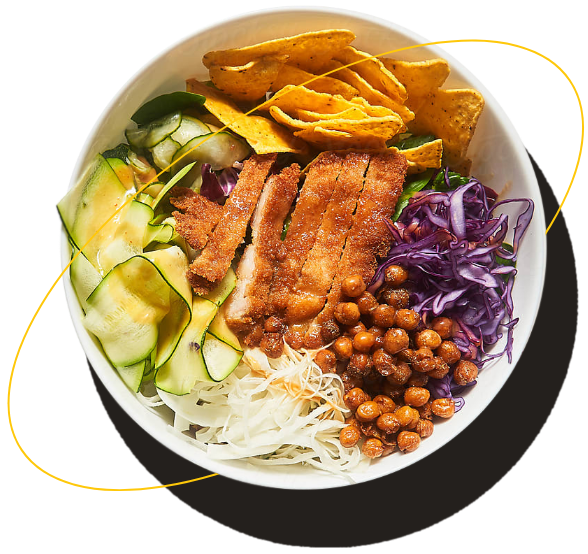Reflections on COP28
2023 December 19
If you’ve seen my LinkedIn posts over the last few weeks, you’ll recall I posted several updates from COP28 in Dubai. It was a whirlwind experience and an honor to be representing our industry on such a grand international stage. Now that I have had a week to reflect, I wanted to share some of my takeaways from the event.
Leading into COP there was a great deal of uncertainty about what the experience would be like. This year food systems received more attention than ever, but it was clear that groups opposing animal agriculture were motivated to call for drastic reductions in meat consumption. Despite not being supported by evidence, the groups and their voices are extremely influential in official policy discussions, as well as in media coverage and messaging for broader audiences.
To address this challenge, Protein PACT partners have invested in being present in influential fora like COP28 to credibly present the industry’s climate commitments, as well as proof of progress.
We want to show up and also facilitate the participation of experts who can demonstrate on this critical stage that animal protein plays a key role for healthy people and a healthy planet. Our priority is to provide data-based and expert-led information on meat’s irreplaceable role in solutions for sustainable food systems and food security.
This year we helped organize several panels in partnership with the Instituto Interamericano de Cooperación para la Agricultura (IICA), with the Food and Agriculture Organization of the UN (FAO) in the Food Pavilion and I even had the opportunity to have a one-on-one discussion with Danielle Nierenberg with Food Tank as part of their very full agenda. We also had many substantive on the ground discussions with a variety of food systems leaders from around the globe.
Toward the end of my time in Dubai, I was asked what are the key takeaways I would bring back to our members? There were three that jumped out to me:
1) The work we’re doing within The Protein PACT to support industry continuous improvement in a transparent and data-driven way that brings together the whole supply chain is absolutely the right direction for our industry. To be taken seriously at events like COP, we have to show how our industry is part of the solution for healthy people and a healthy planet. The Protein PACT framework is a best practice guidance for the industry and allows us to transparently demonstrate our progress over time. It aligns well with the questions we regularly receive about our industry and shows the proof throughout the supply chain.
2) Collaboration is key! Within the meat industry, there is great work happening around the world, whether it’s supporting beef supply chains through the Global Roundtable for Sustainable Beef (GRSB) or the International Livestock Research Institute (ILRI) supporting better lives through livestock in developing countries. No single company, sector or country will solve climate change alone. We were proud to partner with IICA as a leading voice in this effort, demonstrating how animal agriculture supports livelihoods in the Americas. As IICA deputy director general Lloyd Day likes to say, “Every country in the Americas, if not the world, needs a Protein PACT.”
3) Don’t be afraid of partners that might make you uncomfortable. It is easy to stick to our industry bubble, but progress is made when you talk to people outside your comfort zone. I’ve been fortunate to engage with a range of groups who on the surface are not natural partners from various environmental NGOs to cultured meat companies, but once you learn more about their priorities, you find that most of the time there is common ground you can work together on. I always walk away from those conversations enthusiastic about the opportunities they offer. Those partners are key on the pathway to earning greater trust in our industry.
Beyond the experience, there were several important outcomes at COP that showed the importance of livestock as a climate and food security solution:
- According to the FAO’s latest data, livestock account for 12% of global greenhouse gas emissions, down from FAO’s previous estimate of 14.5%.
- FAO’s December 8 report on livestock emissions reduction and its December 10 roadmapfor food systems that end hunger while staying within climate boundaries both conclude that the most effective emissions reduction pathway in livestock is through sustainable intensification in all livestock systems.
- The December 8 report shows that reducing meat consumption is the second least effective way to reduce methane emissions. Productivity improvements have the greatest impact, 5x greater than the modeled dietary shifts. Animal health and feed interventions also have large impacts.
- Producing nutrient-dense foods like meat, milk, and eggs sustainably has never been more important. The FAO has concluded repeatedly that livestock provide crucial sources of nutrition not easily obtained from other sources and which are “vital for normal development and good health.”
At the North American Meat Institute, we agree that not only can meat be produced sustainably, but that it is in fact central to climate and food security solutions. That was reiterated at COP28 and we look forward to working closely with partners in 2024 to bring the message and the evidence to other audiences as well.
Read the article on LinkedIn.

